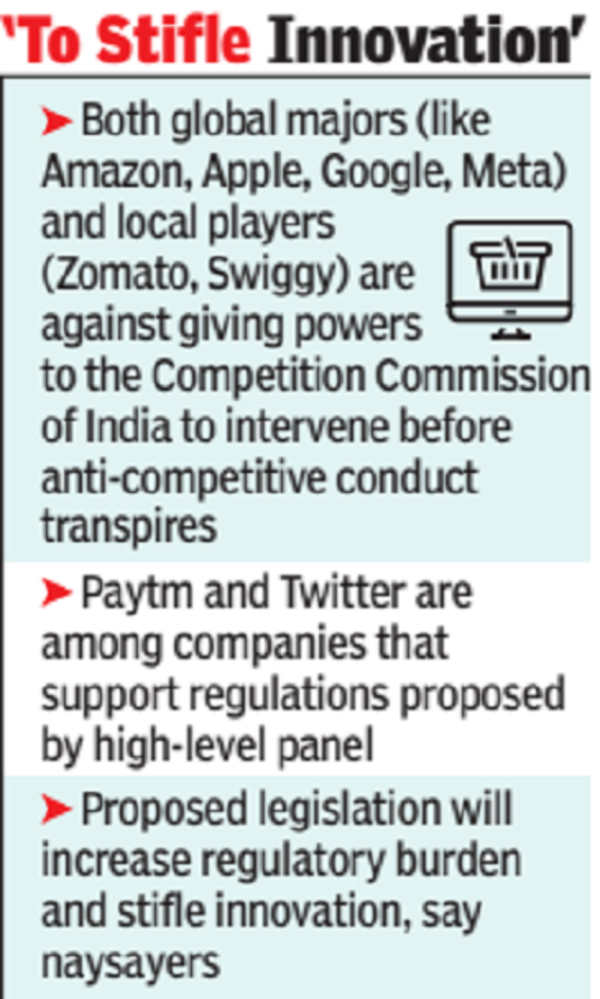[ad_1]
Paytm and Twitter are among companies that support the regulatory mechanism proposed by the high-level panel, whose report was released on Tuesday.The stand of most of the companies as well as industry bodies was part of the summary of stakeholder submissions to the committee headed by corporate affairs secretary Manoj Govil.
The naysayers, who rely on a massive pile of consumer data and user base, are of the view that the proposed legislation will increase the regulatory burden and stifle innovation.

“Amazon is already heavily regulated by the FDI policy, which mandates that it can only act as an online marketplace and not as a seller and that it should provide fair terms to all sellers… Ex-ante regulation for the e-commerce sector may be untimely and excessive and may lead to over-regulation. There is a risk of increased compliance costs and regulatory overlap,” Amazon said in its response. Meta too has put up a similar argument, while suggesting that the experience in other countries doesn’t lead to convergence towards any particular regulatory model.
Apple India said it backed “light touch regulation” that supported innovation. In its submissions, Oyo said: “Digital technology is evolving, and it is important that competition remains fair and transparent. Regulations should focus on promoting competition, protecting consumer rights and ensuring fair and equitable access to digital services.”
Industry bodies such as Nasscom and National Restaurant Association of India have, however, supported the plan. NRAI has accused food delivery apps of malpractices, such as, preferential treatment to a few sellers, targeted platform-funded discounts and minimum business guarantees and lack of transparency in search rankings.
Paytm made a similar argument: “The dominance of large digital enterprises is visible in the bundling of services, which create asymmetric pricing and binds developers into taking all services from app store operators…”
[ad_2]
Source link
